Celebrities raving about a tinnitus cure that’s too good to be true. AI-generated videos spreading like wildfire across social media. Outlandish claims and sketchy marketing tactics. This is the curious case of ZenCortex – a product that’s whipped up a storm online, but left many questioning if it’s medicine or marketing magic.
In this article, we peel back the layers on ZenCortex to reveal what’s real and what’s AI fantasy. You’ll learn about the pseudo-science promises behind the drops, the doctored celebrity endorsements designed to go viral, and – most crucially – the potential risks of buying into the hype before consulting a doctor.
Tinnitus is no trivial condition. Any treatment worth its salt needs to be scrutinized thoroughly. Read on to ensure you have the facts before trying ZenCortex for yourself.
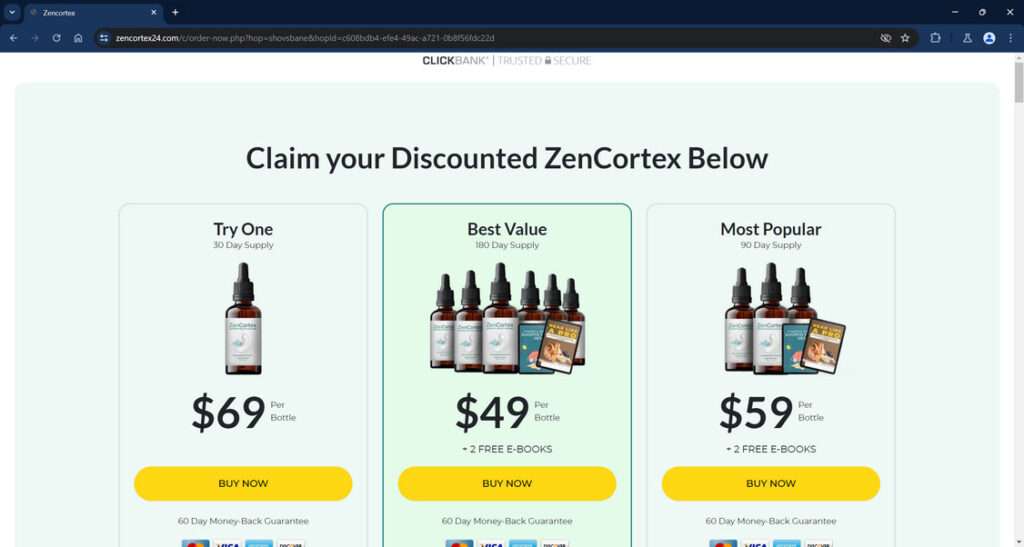

What is ZenCortex for Tinnitus?
ZenCortex Tinnitus is marketed as an innovative ear care product that claims to improve ear health and reduce the intensity and frequency of tinnitus. According to the product’s website, the Drops is formulated with natural and effective ingredients that penetrate ear tissues, balance the auditory system, and promote ear circulation. The advertisers of ZenCortex Tinnitus claim that users will experience an immediate cooling and soothing effect, relieving ear discomfort and enhancing the clarity of hearing.
In addition to addressing hearing issues, the product’s marketing materials suggest that ZenCortex Tinnitus provides comprehensive emotional and psychological support, helping to improve the user’s mental state and enhance their overall quality of life. The website claims that the drops brings a sense of tranquility and relaxation, allowing users to better focus on their tasks and enjoy a more fulfilling life.

Questionable Marketing Tactics
1. Celebrity Endorsements
One of the most prominent and concerning aspects of the ZenCortex Tinnitus marketing campaign is the use of AI-generated videos featuring celebrities like Dr. Oz. These videos create the illusion that these well-known figures endorse the product and its effectiveness in treating tinnitus. However, it is highly unlikely that these celebrities have any genuine involvement with ZenCortex Tinnitus or have ever used the product themselves.
The use of celebrity endorsements, whether real or fabricated, is a common tactic employed by marketers to create a sense of trust and credibility around their products. By associating a well-known and respected figure with a product, marketers aim to transfer the celebrity’s positive attributes and reputation to the product itself. In the case of ZenCortex Tinnitus, the AI-generated videos of Joe Rogan, Dr. Oz and Kevin Costner are designed to make potential customers believe that these celebrities stand behind the product’s effectiveness and safety.
However, the use of fabricated celebrity endorsements is not only misleading but also unethical. It takes advantage of consumers’ trust in public figures and exploits their desire for relief from tinnitus. Potential customers should be wary of any product that relies on celebrity endorsements, especially when those endorsements appear to be generated by artificial intelligence rather than genuine testimonials.
2. Fake Testimonials
Another red flag in the marketing of ZenCortex Tinnitus is the presence of fake testimonials on the product’s website and in its advertising materials. These testimonials often appear as comments or reviews from supposed customers who claim to have experienced significant relief from tinnitus and improvements in their overall quality of life after using the Drops.
However, upon closer inspection, these testimonials are likely fabricated and are designed to trick potential buyers into believing that the product has a proven track record of success. The use of fake testimonials is a common tactic among scam products, as it creates a false sense of social proof and encourages potential customers to make a purchase based on the apparent experiences of others.
The problem with fake testimonials is that they are entirely unverifiable and do not represent the true experiences of real customers. In fact, the use of fake testimonials is a violation of consumer protection laws and is considered a deceptive marketing practice. Consumers should always approach testimonials with a critical eye and look for signs that they may be fabricated, such as overly enthusiastic language, lack of specific details, or a high volume of similar reviews posted within a short time frame.
3. Exaggerated Claims
The marketing materials for ZenCortex Tinnitus make numerous exaggerated claims about the product’s ability to improve various aspects of life for those suffering from tinnitus. These claims include improved sleep quality, enhanced concentration, better emotional well-being, and an overall higher quality of life.
While it is true that tinnitus can have a significant impact on an individual’s quality of life, the claims made by ZenCortex Tinnitus seem too good to be true and lack substantial scientific evidence to support them. The website provides no information about clinical trials or studies that have been conducted to verify the effectiveness of the Drops in treating tinnitus or improving related symptoms.
Moreover, the claim that ZenCortex can provide “comprehensive emotional and psychological support” is particularly concerning, as it suggests that the product can replace the need for professional mental health care. Tinnitus can indeed take a toll on an individual’s emotional well-being, but a topical Drops is not a substitute for proper psychological treatment and support.

Consumers should be cautious of any product that makes exaggerated or unsubstantiated claims about its effectiveness, as these claims are often a sign of a scam or a product that does not live up to its promises. It is essential to look for products that have been rigorously tested and have demonstrated their efficacy through scientific research and clinical trials.
Lack of FDA Evaluation
Another concerning aspect of the ZenCortex Tinnitus marketing campaign is the lack of any mention of whether the product has been evaluated by the Food and Drug Administration (FDA). The FDA is responsible for regulating the safety and efficacy of medical products, including drugs, medical devices, and dietary supplements.
The absence of any information about FDA evaluation on the ZenCortex website raises questions about the product’s safety and effectiveness. If the drops had been properly evaluated and approved by the FDA, it is likely that the manufacturers would prominently display this information to instill trust in potential customers.
The lack of FDA evaluation is particularly worrisome given the product’s claims of containing “natural and effective ingredients” that penetrate ear tissues and balance the auditory system. Without proper testing and regulation, there is no way to verify the safety or effectiveness of these ingredients when used in a topical Drops for the treatment of tinnitus.
Consumers should always look for products that have been evaluated and approved by the FDA, as this ensures that the product has undergone rigorous testing and has been deemed safe and effective for its intended use. In the absence of FDA approval, potential customers should exercise extreme caution and consult with a healthcare professional before using any new product, especially one that makes bold claims about its ability to treat a medical condition.
ZenCortex Tinnitus Relief Drops has been also investigated by Jordan Liles on his YouTube channel, where he offers a detailed video on the subject. We recommend watching his content for a comprehensive understanding of the deceptive marketing.
The Potential Risks of Using ZenCortex Tinnitus
Given the questionable marketing tactics and lack of reliable information about the safety and efficacy of ZenCortex Tinnitus, potential customers should be aware of the potential risks associated with using the product.
Unverified Safety
One of the most significant risks of using ZenCortex Tinnitus Relief Drops is the lack of verified safety information. As mentioned earlier, the product has not been evaluated by the FDA, which means that there is no way to know whether it has undergone proper safety testing or if it has the potential to cause adverse reactions or interact with other medications.
Ineffectiveness
Another potential risk of using ZenCortex Tinnitus Relief Drops is that it may simply be ineffective in treating tinnitus or improving related symptoms. Despite the bold claims made by the product’s marketing materials, there is no scientific evidence to support the idea that its ingredients can significantly reduce the severity or frequency of tinnitus.
In fact, many of the claims made by ZenCortex Tinnitus Relief Drops, such as improved sleep quality, enhanced concentration, and better emotional well-being, are not typically associated with the use of herbal supplements. These claims seem to be more of a marketing tactic than a reflection of the product’s actual capabilities.
Using an ineffective product not only wastes money but also delays proper treatment for tinnitus. Tinnitus can be a challenging condition to manage, and it is essential to work with a healthcare professional to identify the underlying cause and develop an appropriate treatment plan. Relying on an unproven product like ZenCortex Tinnitus Relief Drops may prevent individuals from seeking the care they need and may even worsen their symptoms over time.
False Hope
Perhaps the most significant risk of using ZenCortex Tinnitus Relief Drops is the false hope it may provide to individuals suffering from tinnitus. Tinnitus can be a debilitating condition that significantly impacts an individual’s quality of life, and many people are desperate for a solution that can provide relief from the constant ringing or buzzing in their ears.
The marketing tactics used by ZenCortex Tinnitus Relief Drops, including the use of celebrity endorsements and exaggerated claims, are designed to prey on this desperation and create a sense of hope that the product can provide a quick and easy solution to tinnitus. However, this hope is likely misplaced, given the lack of scientific evidence to support the product’s effectiveness.
Moreover, the use of false hope can be emotionally damaging to individuals with tinnitus, as it may lead them to invest significant time, money, and energy into a product that ultimately fails to deliver on its promises. This can lead to feelings of frustration, disappointment, and even despair, which can further exacerbate the emotional and psychological toll of tinnitus.
It is crucial for individuals with tinnitus to have realistic expectations about the treatment options available to them and to work closely with a healthcare professional to develop a comprehensive management plan. While there is no cure for tinnitus, there are many evidence-based treatments and coping strategies that can help to reduce the impact of the condition on daily life, including sound therapy, cognitive-behavioral therapy, and stress-reduction techniques.
The Importance of Consulting with a Healthcare Professional
Given the potential risks and questionable marketing tactics associated with ZenCortex, it is essential for individuals with tinnitus to consult with a healthcare professional before trying any new treatment options.
A healthcare professional, such as an audiologist or ENT (ear, nose, and throat) specialist, can provide a proper diagnosis of tinnitus and help to identify any underlying medical conditions that may be contributing to the symptoms. They can also provide guidance on the most appropriate treatment options based on the individual’s specific needs and medical history.
In some cases, tinnitus may be a symptom of a more serious underlying condition, such as Meniere’s disease, a vestibular schwannoma, or a cardiovascular disorder. These conditions require prompt medical attention and may not be effectively treated by a product like ZenCortex.
Moreover, a healthcare professional can provide information about the latest research and clinical trials related to tinnitus treatment, as well as connect individuals with support groups and other resources that can help them to cope with the emotional and psychological impact of the condition.
It is important to remember that there is no one-size-fits-all approach to treating tinnitus, and what works for one person may not work for another. A healthcare professional can help to tailor a treatment plan that takes into account an individual’s unique needs and preferences, and can adjust that plan over time based on the response to treatment.
Similarities to Other Questionable Tinnitus Products
Upon further investigation, it becomes apparent that ZenCortex is not the only product on the market using questionable marketing tactics and making bold claims about tinnitus relief. Other products, such as Cortexi, CerebroZen, and Echo Ease, employ similar strategies to attract potential customers.
These products often feature websites with comparable designs, touting the alleged benefits of their “revolutionary” formulas. They may claim to use natural ingredients that are scientifically designed to target the root cause of tinnitus. However, like ZenCortex, these products often lack credible scientific evidence to support their claims.
The marketing campaigns for Cortexi, CerebroZen, and Echo Ease also tend to rely on persuasive techniques, such as limited-time offers, money-back guarantees, and glowing customer testimonials. These tactics create a sense of urgency and social proof, encouraging potential customers to make a purchase without thoroughly researching the product’s legitimacy.
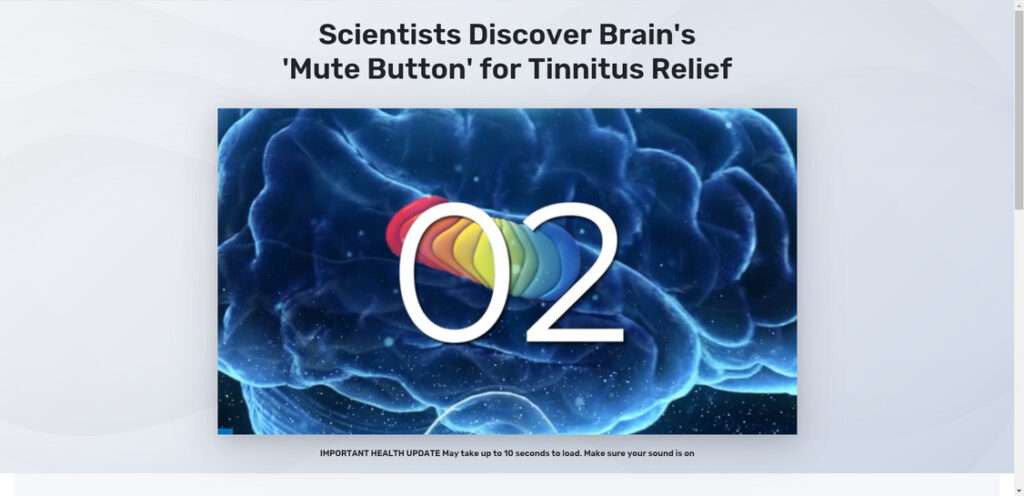



Moreover, these products may use similar language in their advertising, promising rapid relief from tinnitus symptoms, improved cognitive function, and a better quality of life. They may also claim to be suitable for all types of tinnitus, regardless of the underlying cause or severity of the condition.
The striking similarities between ZenCortex and products like Cortexi, CerebroZen, and Echo Ease suggest that there may be a larger trend of questionable tinnitus treatments on the market. These products seem to follow a common template, preying on the desperation of tinnitus sufferers and making exaggerated claims without proper scientific backing.
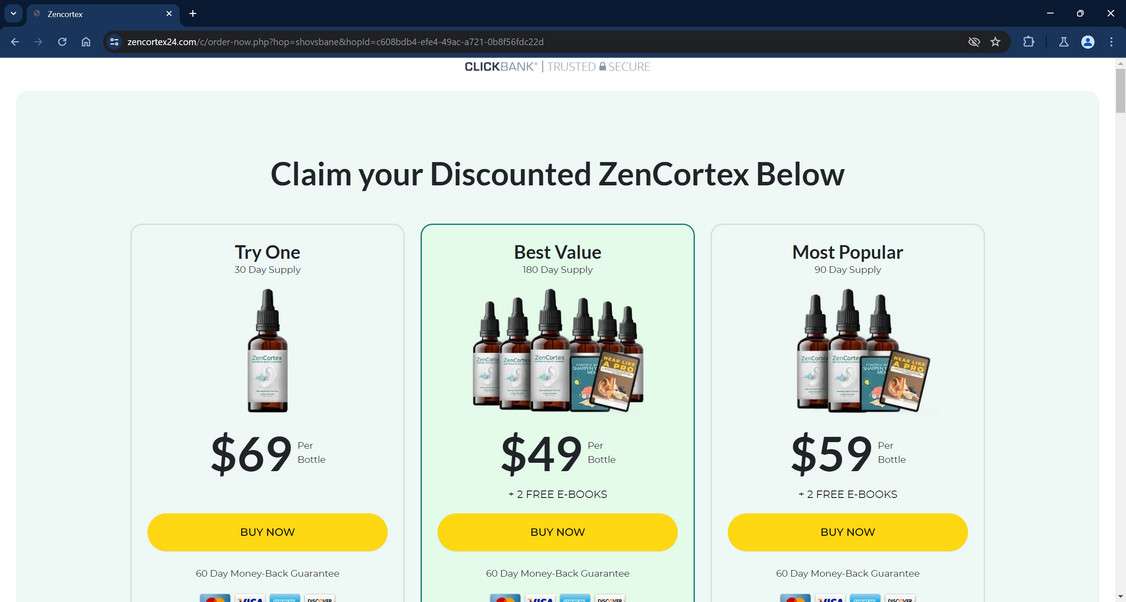
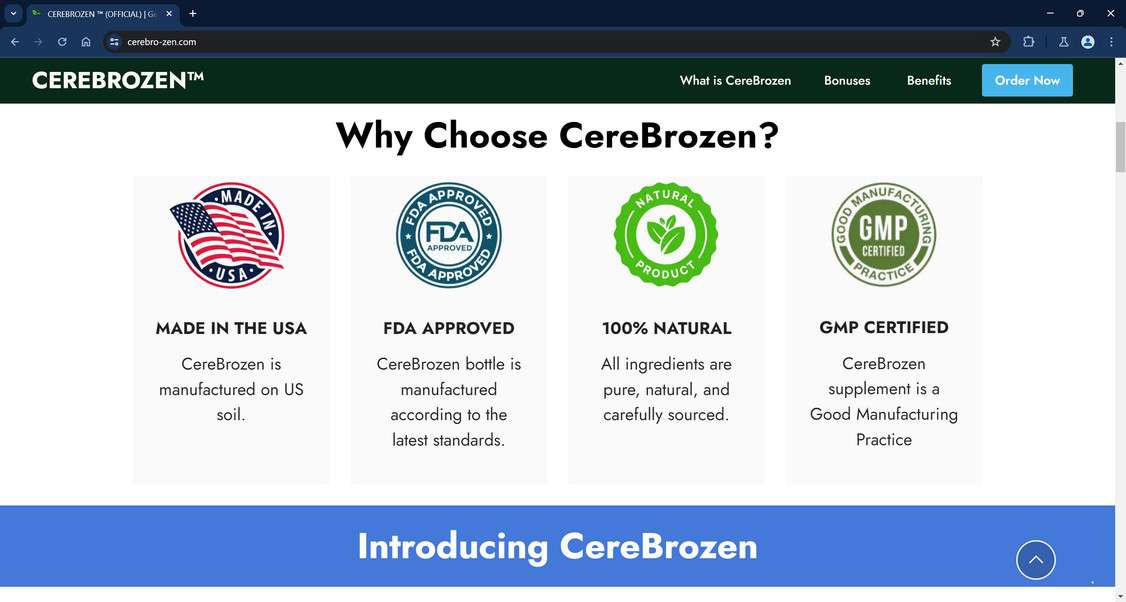

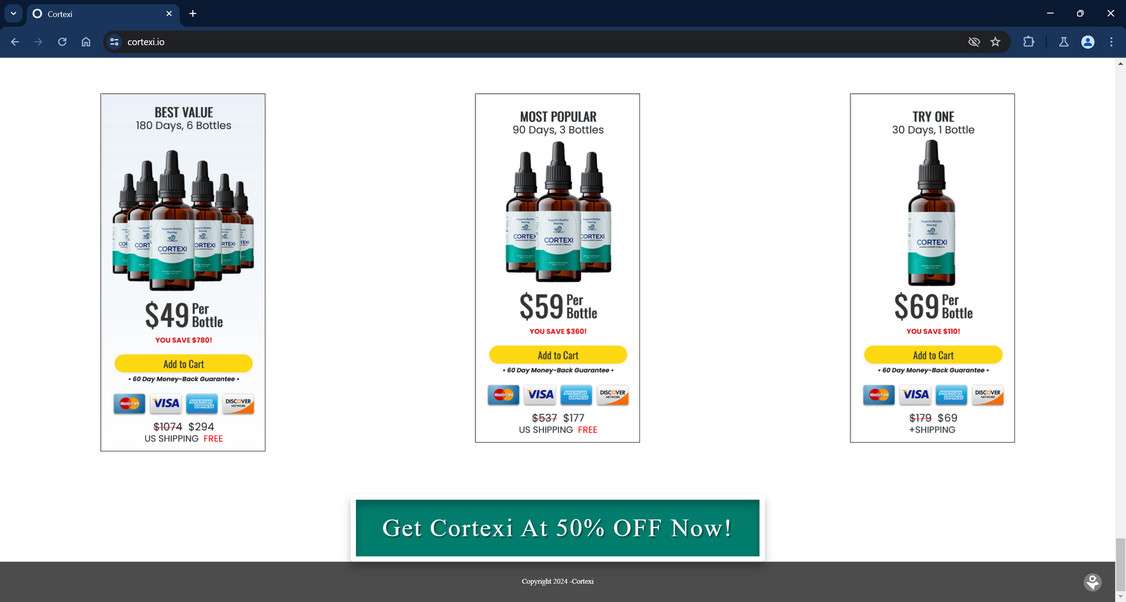
It is crucial for consumers to be aware of these patterns and to approach any tinnitus treatment with a critical eye. Rather than falling for persuasive marketing tactics, individuals should prioritize consulting with healthcare professionals and seeking out evidence-based treatments that have been rigorously tested and proven effective.
FAQs
1. What is ZenCortex Tinnitus?
ZenCortex is a product marketed as a natural and effective way to treat tinnitus and improve ear health. The Drops contain natural ingredients and claim to penetrate ear tissues, balance the auditory system, and promote ear circulation.
2. Is ZenCortex endorsed by Dr. Oz?
No, the celebrity endorsements used in the marketing of ZenCortex Tinnitus, including videos of Joe Rogan, Dr. Oz and Kevin Costner, are AI-generated and do not represent genuine endorsements from these celebrities.
3. Has ZenCortex Tinnitus been evaluated by the FDA?
There is no information on the ZenCortex Tinnitus website to suggest that the product has been evaluated or approved by the FDA. This lack of FDA evaluation raises concerns about the product’s safety and efficacy.
4. Should I try ZenCortex Tinnitus if I have tinnitus?
It is not recommended to try ZenCortex Tinnitus without first consulting with a healthcare professional. The product’s marketing tactics and lack of reliable safety and efficacy information raise concerns about its potential risks and benefits. A healthcare professional can provide guidance on the most appropriate and evidence-based treatments for tinnitus based on your individual needs and medical history.
Conclusion
In conclusion, while the promise of quick and easy relief from tinnitus may be tempting, the marketing tactics and potential risks associated with ZenCortex should give potential customers pause. The use of AI-generated celebrity endorsements, fake testimonials, exaggerated claims, and the lack of FDA evaluation are all red flags that suggest the product may not live up to its promises.
Individuals with tinnitus who are seeking relief from their symptoms should consult with a healthcare professional before trying any new treatment options, including ZenCortex Tinnitus. A healthcare professional can provide guidance on the most appropriate and evidence-based treatments for tinnitus, as well as help to manage any underlying medical conditions that may be contributing to the symptoms.
While the emotional and psychological impact of tinnitus can be significant, it is essential to approach treatment with caution and to be wary of products that make bold claims without proper scientific evidence to back them up. By working closely with a healthcare professional and using proven coping strategies and treatments, individuals with tinnitus can find ways to manage their symptoms and improve their overall quality of life.
This article is for educational purposes only and does not constitute professional, financial or legal advice. The content is intended for general information and should not be construed as definitive guidance. Information contained herein is subject to change without notice. For concerns, please contact us via the provided form.
If you are the owner of the website or product in question and wish to offer clarifications regarding your business or website, please reach out to us through the provided Contact Form.
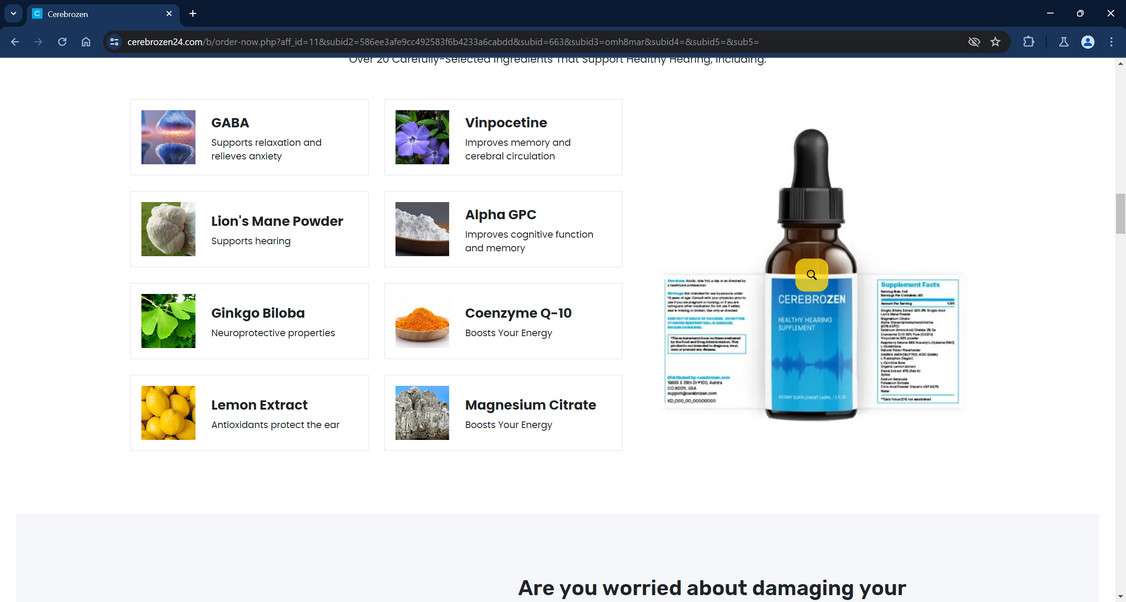


![How to Remove Njvq-defender.sbs Pop-ups [Virus Removal Guide] 21 McAfee scam 4](https://malwaretips.com/blogs/wp-content/uploads/2023/08/McAfee-scam-4-290x290.jpg)